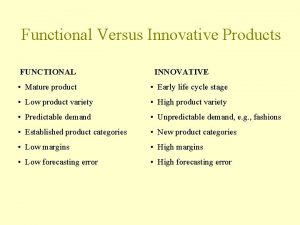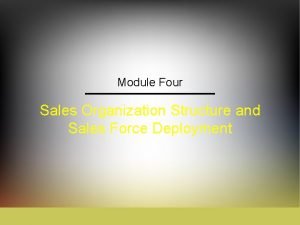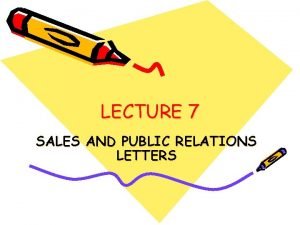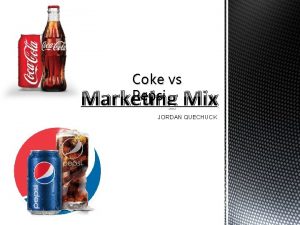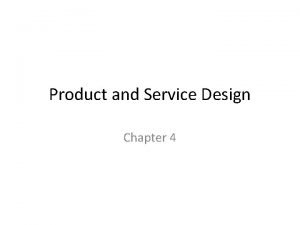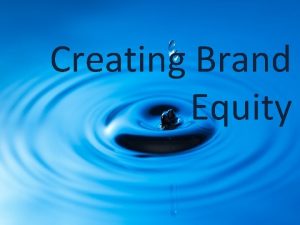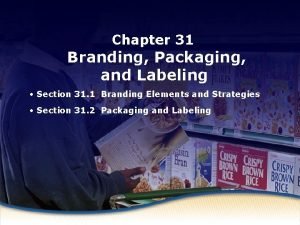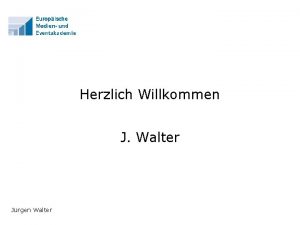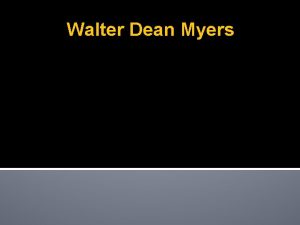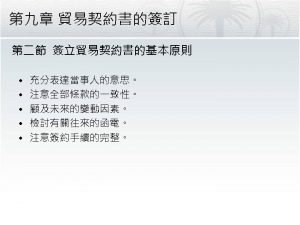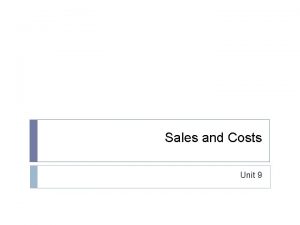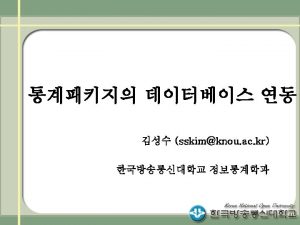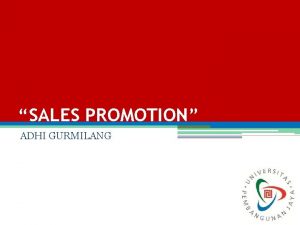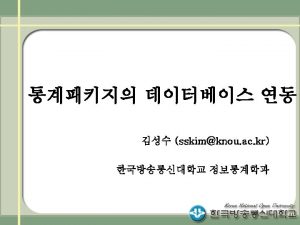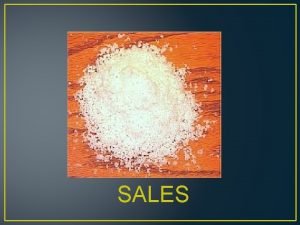American Services And Products Walter Coelho International Sales
















- Slides: 16

American Services And Products Walter Coelho International Sales Representative Oscar Bueso Sales Latin America Joe Chao Technical Advisor / Domestic Sales

Ballistics Overview Review of common ballistic materials Typical vest construction Review of ballistic standards Anti stab armour The vest manufacturer’s art Blunt Trauma

Ballistic materials Soft armour Manufacturer Type Name Construction Twaron Aramid Twaron Woven Dupont Aramid Kevlar Woven DSM Polyethylene Dyneema Uni-directional Honeywell Polyethylene Spectra shield Uni –directional Twaron Aramid Goldflex Uni-directional Toyobo PBO Zylon Woven or unidirectional

Ballistic materials Hard armour TYPE WEIGHT** CONSTRUCTION Ceramic 5. 7 lbs/2. 6 kgs Ceramic (alumina oxide) with aramid backing Steel 7. 7 lbs/3. 5 kgs Tempered steel/specialised metals UHMWPE 3. 1 lbs/1. 4 kgs Pressed polyethylene Dyneema or Spectrashield Glass Ceramic 4. 2 lbs/1. 9 kgs ** 10 x 12 inch combination plate Glass ceramic with aramid or UHMWPE backing

Ballistic panel construction Ballistic Level Type Construction Plies NIJ IIIA Aramid 100% Aramid 30 -32 NIJ IIIA Polyethylene 100% Polyethylene 32 -34 NIJ IIIA PBO 100% PBO 32 -34 NIJ IIIA Hybrid x% Aramid x% Polyethylene 26 NIJ IIIA Hybrid x% Aramid x% PBO 26

Review of Ballistic standards NIJ the most common standard, but many National standards exist Levels IIA, II and IIIA cover hand guns Levels III and IV cover rifles

NIJ Standard 0101. 04 NIJ LEVEL BULLET TYPES IIA 9 mm FMJ, . 40 S & W II 9 mm FMJ, . 357 Mag JSP IIIA 9 mm FMJ, . 44 Mag SJHP III 7. 62 x 51 NATO FMJ IV . 30 M 2 AP Go to www. nlectc. org for full definition of NIJ protocol

MIL STD and STANAG NIJ = V 0 standard, stop pass/no stop fail Mil Std 662 E (USA) and STANAG 2920 (NATO) are V 50 standards using a FSP (fragment simulation projectile) (17 gr FSP)

Anti Stab Armor US STD NIJ 0101. 15 , UK PSDB Anti stab and anti spike are different Solutions can be woven, chainmail, platelets, steel/aluminium/titanium wire

Manufacturers’ art l l Firstly To meet the specified standard To construct the best functional carrier The produce the lightest, most flexible and most comfortable solution To provide a cost effective package

Selecting body armor Chose the correct Level of protection Select only independently certified armor Balance weight and flexibility against price Allow the manufacturer to use their skills Consider breathability and comfort Chose a reputable manufacturer

Measurement of Performance The V 50 is usually used as the basic measurement of performance V 50 is the 50% probability of penetration of defined bullet type expressed in terms of velocity in m/sec (or in the USA fps) Areal weight is also used and this is expressed in terms of kg/m 2 (or in the USA lbs/ft 2) Sometimes these two references are used to express a RPI (Relative Performance Indicator) V 50 divided by A/D – This enables comparative evaluation between armour types

Blunt Trauma The US National Institute of Justice Standard is 44 mm maximum depth of indentation on the body side, or trauma, measured on a clay similar to Roma Plastilina #1 Body armor solution= protection x comfort

International Standards BFS Country Blunt Trauma Level US NIJ <44 mm UK PSDB <25 mm German Schutzklasse <25 mm and 40 mm Belgium <20 mm Netherlands KLPD <20 mm Sweden RPS <25 mm

Hard Armour Plates Hard armour plates are designed to defeat high velocity rifle rounds NIJ Level III and NIJ Level IV Materials= steel, ceramic or UHMWPE

American Services And Products 10711 SW 216 th Street, Suite 101 Miami FL 33170 USA Tel. Fax (305) 432. 3612 Tel. Fax (305) 423. 8110 www. americanservicesandproducts. com sales@americanservicesandproducts. com
 American services and protection
American services and protection Functional products vs innovative products
Functional products vs innovative products Salesforce sales organization structure
Salesforce sales organization structure Discuss the nuances of sales letters.
Discuss the nuances of sales letters. Sales organization structures
Sales organization structures Procedure for designing sales territory
Procedure for designing sales territory Pepsi vs coke marketing strategy
Pepsi vs coke marketing strategy Sales force composite
Sales force composite Unified products and services inc
Unified products and services inc Entertainment products and services
Entertainment products and services Berkshire hathaway products
Berkshire hathaway products What does product and service design do
What does product and service design do Product services and brands building customer value
Product services and brands building customer value Market singapore
Market singapore American marketing association definition brand
American marketing association definition brand Packaging different products or services together
Packaging different products or services together Products and services for consumers
Products and services for consumers

